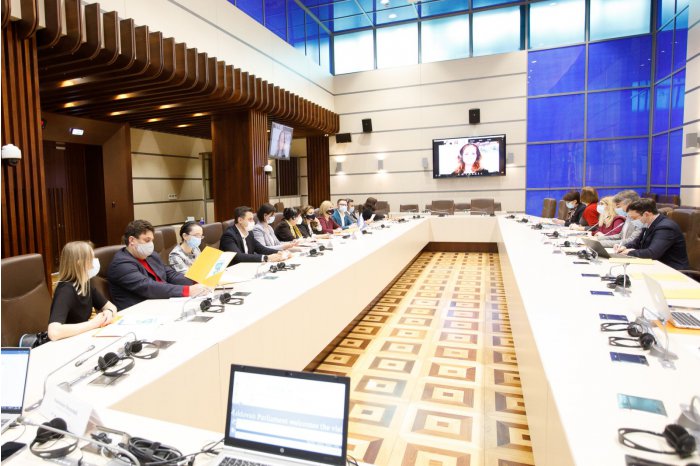Moldova's family policies must be adjusted, UNFPA experts say
14:46 | 28.10.2021 Category: Social
Chisinau, 28 October /MOLDPRES/ - The family policies from Moldova must be adjusted to the EU Directive Work-Life Balance for Parents and Carers and should become friendlier for the employees with children. These are recommendations by the experts of the United Nations Population Fund (UNFPA), included in a new survey.
According to an analysis of the national regulations through the EU Directive on Reconciliation of the Work and Family Life, carried out by UNFPA, the maternal model of taking care of children and family members is perpetuated in Moldova and a discriminatory approach is recorded in relation to men, when it comes to the taking care of a newly born child. Women, for instance, have right to maternity leave, no matter how many years they worked, while men can take child-birth paternity leave (14 days) only if they have worked at least 3 years.
According to the analysis, the legislation in the sector of labour, social insurances and contravention responsibility needs changes in line with the provisions of the EU Directive Work-Life Balance for Parents and Carers. More opportunities are necessary for both parents and carers to be able to benefit from equal rights for the allocation of the time needed for the family members, especially for children and the ones with health problems.
Among the recommendations formulated by experts, there is the establishment of the right of the fathers wage earners to a paternal allowance, no matter the number of years worked. Another recommendation regards the flexible labour arrangements for the employees with children with ages of at least 8 years and for the employees carers. Along with the paternity leave and the one for bringing up children, the flexible labour arrangement target the enhancement of fathers’ involvement in the taking care and education of children, including in balancing the distribution and fulfillment of other home tasks.
According to a demographic survey, Generations & Gender, made by UNFPA on a sample of 10,000 people in 2020, the home tasks continue to be distributed unfairly between the partners. Over 82 per cent of the women say that always or as usual, they are responsible for cooking meals, with the weight of men being several dozens of times lower.
Photo: UNFPA

